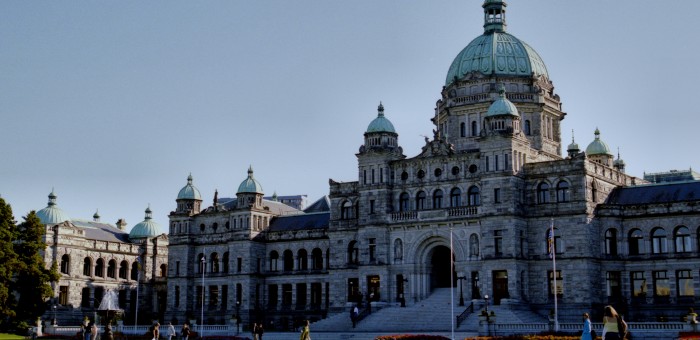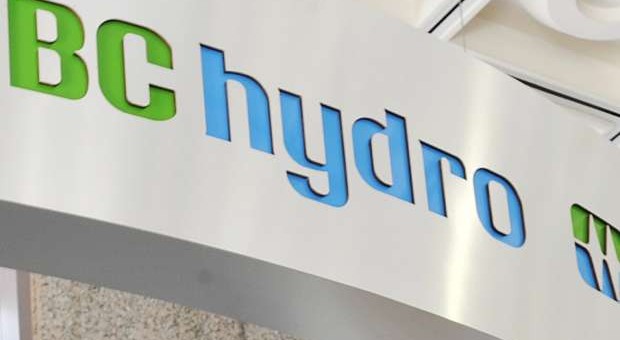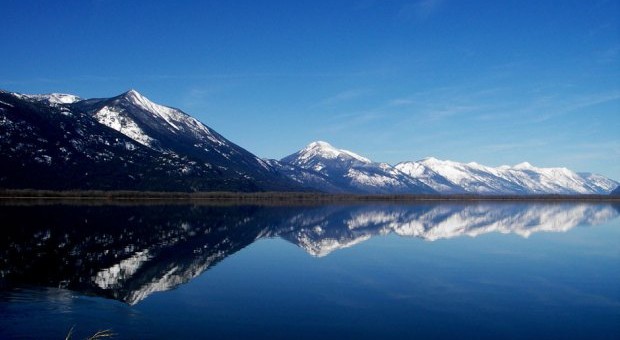Losing Leadership on Provincial Climate Policies
This week was a clear reminder of why I decided to run for office.
Back in 2008, I had the honour of working with then Premier Gordon Campbell, his Minister of Environment, the Honourable Barry Penner and the Climate Action Team to outline clear, bold and practical steps that we as a province could take to address global warming.
Together with government, academics, industry leaders, and First Nations, we developed a suite of policies that would allow us to reduce our carbon emissions while supporting strong economic growth. Six years later, British Columbia’s climate policies were still seen as leading the way in North America.
On Monday the Liberal government tabled a bill that threatens to undermine that success.
Bill 2: The Greenhouse Gas Industrial Reporting and Control Act would see British Columbia repeal legislation that would have enabled us to enter a cap and trade framework with our Pacific Coast climate action partners. In its place, we would adopt new legislation that would see us embrace what’s called an “emissions intensity” scheme along the lines of what Alberta and the Harper Tories have done.
Whereas a cap and trade framework would force us to reduce the total amount of carbon we emit into the atmosphere, an emissions intensity scheme would only require businesses to reduce the amount of carbon produced in liquefying a specified quantity of natural gas.
Here’s the problem: Our climate doesn’t care about emissions intensity. Our climate cares about the overall magnitude of emissions. If we increase the production of LNG, even if it is produced more and more efficiently, emissions are still going up. Ultimately, the climate only cares about the total amount of carbon pollution a facility would release and how much carbon pollution is in our atmosphere.
An emissions intensity scheme wouldn’t limit the overall carbon emissions. That’s why if you compare Alberta’s emissions to British Columbia’s, you will see that while British Columbia’s emissions decreased in the last few years, Alberta’s increased.
So why are we going down this path? Because the government knows that emissions are going to skyrocket if we develop our LNG industry. And an Alberta or Harper Government style emissions intensity model will provide the illusion of action on global warming at the same time as our overall magnitude of carbon emissions continue to increase. That’s all this is: The illusion of action.
The simple fact is, if we pass this bill, we may as well say goodbye to all of the progress we have made, for we will be stepping into a new era as one of the most polluting provinces in Canada.
As part of the debate on this Bill, I introduced an amendment that proposed that the Legislature delay debate on this Bill for 6 months. This would allow us as MLAs to put more time and thought into this Bill, and to ensure that we have carefully thought through the consequences of losing our leadership in addressing global warming. My amendment was voted down 40 to 28, with the BC NDP voting in support of the amendment.
Here is a quick guide to my four main areas of critique for this piece of legislation.
- The bill will see B.C. undermine its highly effective climate policies with an Alberta-style emissions intensity framework that has been shown to be ineffective at reducing net emissions. This is the same type of framework that was adopted federally by PM Stephen Harper’s Conservative Government, amidst significant criticism.
- Under an emissions intensity framework, the magnitude of net carbon emissions can increase significantly despite the emissions intensity decreasing. Ultimately, the magnitude of net carbon emissions is the only thing that matters as far as global warming is concerned. This change is being made to allow for a dramatic increase in carbon emissions from the proposed LNG industry.
- The bill would repeal the Greenhouse Gas Reduction (Cap and Trade) Act that was passed as enabling legislation to allow B.C. to enter into a regional cap and trade framework with other jurisdictions including California, Washington and Oregon. A cap and trade framework would allow B.C. to reduce the magnitude of net carbon emissions.
- The bill would give cabinet the power to change the 0.16 emissions intensity limit through regulation without having to bring it back to the legislature for debate. This is the key point of the legislation that the government points to as evidence of their pledge to have the “cleanest LNG” in the world. The fact that “cleanest LNG” is not fixed in legislation, should raise significant concerns about the government’s commitment to this limit.
Please consider reading through the entire text of my speech for a more detailed explanation of my opposition to Bill 2.
Media Statement: October 22, 2014
MLA Weaver Tables Amendment to LNG Emissions Act
For immediate release
Victoria, B.C. – The B.C. Government’s proposed Greenhouse Gas Industrial Reporting and Control Act (Bill 2) is a rushed piece of legislation that undermines our climate leadership and puts our ability to reduce future emissions at risk, says Andrew Weaver, MLA for Oak Bay – Gordon Head and Deputy Leader of the B.C. Green Party.
Today in the legislature, Andrew Weaver spoke to his concerns and submitted a hoist amendment that called for the bill to be delayed by 6 months to give MLAs and the public more time to scrutinize it.
The bill, which went into second reading today, would see British Columbia adopt an Alberta-style emissions intensity framework. This framework would allow overall emissions to increase in the Province, even as the Government would be taking credit for a reduction in the emissions intensity.
“Our climate cares very little for accounting tricks,” said Andrew weaver. “If we are going to take our responsibility to tackle climate change seriously, the only thing that truly matters is whether we are reducing the quantity of carbon emissions we are releasing. This bill won’t do that.”
Another major concern with the Bill is the apparent “blank-cheque” that it awards government. The legislation would effectively allow cabinet to re-write major sections of the legislation through regulations without the scrutiny of the House. British Columbians will not know many crucial details until well after Bill 2 is passed, and the Government will have avoided essential scrutiny that only the House can provide.
Finally, the bill would repeal the Greenhouse Gas Reduction (Cap and Trade) Act (2007) that was passed to enable a regional cap and trade framework with other jurisdictions including California, Oregon and Washington.
“It has become a political necessity for this government to land LNG, no matter what the cost is to British Columbians. With Bill 2, the cost may be our leadership in the fight on global warming,” said Andrew Weaver. “This Bill is asking us to choose between continuing forward with a singular focus on LNG, or taking seriously our responsibility to reduce this province’s Greenhouse gas emissions. Under this proposed legislation it will be impossible for us to have it both ways.”
Weaver’s amendment was voted down 28 to 40 with the BC NDP voting in support of the amendment.
-30-
Media Contact
Mat Wright – Press Secretary, Andrew Weaver MLA
Mat.Wright@leg.bc.ca
Cell: 1 250 216 3382
BC Hydro Rate Increase and Low-income Families
Over the past few weeks I have received a number of letters from constituents voicing their concerns about the recent announcement that BC Hydro will be raising the rates British Columbians pay for electricity.
Hydro Rates have been artificially low for a number of years now, based in large part because British Columbians are still benefiting from investments into hydroelectric dams from several decades ago. BC Hydro is now reinvesting in these capital projects, while also making investments in new projects to ensure that it can meet growing demand.
The reality that rates need to increase should not detract from a number of other concerns relating to BC Hydro’s operations including: political intervention, the role of BCUC and the overuse of deferral accounts, to name a few. All of these issues will play a role in determining future hydro rates. There is no simple solution to the challenges facing our public utility. We need to have a serious discussion about how we generate, manage, oversee and deliver our power.
In the meantime, however, there is also the need to ensure that decisions made today do not adversely affect those who are most vulnerable. Given that rates are going up dramatically over such a short period of time, we need to protect low-income earners. It is unacceptable to leave people choosing between essentials. In response to some of the concerns raised by constituents, I have sent the following letter to Minister Bennett:
Dear Minister Bennett,
Like you, I have been the recipient of a large number of emails expressing concern over the proposed BC Hydo rate hikes. I recognize that British Columbians presently pay some of the lowest electricity rates in North America as we benefit from capital investments made decades ago. I also recognize that our electricity rates will need to increase in the years ahead if we plan to update our aging infrastructure and bring on new sources of power.
Within our society, there are some who will struggle to pay the 28% increase over the next five years due to our high cost of living, particularly in Greater Vancouver and Victoria. As such, I am writing to suggest that your ministry consider introducing an energy rebate mirrored after the current carbon tax rebate for low income British Columbians. In addition, I assume that BC Hydro will continue its Power Smart for low-income households program.
By fixing the low-income energy rebate as a direct percentage of the carbon tax rebate, administrative overhead would be minimal. Such a rebate could be phased out with time, but its introduction is important to mitigate the economic shock to our lowest income residents.
Thank you in advance for considering this request.
Andrew Weaver
MLA Oak Bay-Gordon Head
Have your say on BC’s new Water Sustainability Act
Did you know that while you have to pay for tap water, a company can take millions of litres of ground water from anywhere in British Columbia free of charge?
Why is that? It is because B.C. is the only province in Canada that does not currently regulate ground water usage. In fact, despite some changes over the years, our provincial Water Act hasn’t changed much in over 100 years—since 1909.
I was therefore pleased when, on October 18, 2013 the Minister of the Environment, Mary Polak, released the government’s legislative proposal for a new Water Sustainability Act.
The proposal is part of a much needed Water Act Modernization process that began in 2008. The details of this act will determine how ground water usage is regulated and potentially create opportunities for water protection at the watershed level. It will also enable a variety of governance arrangements, allowing for flexibility and adaptability in different regions.
However, as with everything, the devil will be in the details. Take the Nestle example, for instance. A few months back Nestle was in the news because it doesn’t pay for the ground water it extracts in B.C. for its bottled water. Under the new proposed costs, Nestle would now be able to fill 2 million 500ml bottles of water (your typical vending machine variety), for a total cost to them of only 85 cents.
There are certainly other issues that will need to be addressed in this legislative proposal, and the public engagement process is an opportunity to voice your own concerns. One of the more detailed responses so far was produced by the University of Victoria’s POLIS Water Sustainability Project. I encourage you to read the legislative proposal and the responses that groups like POLIS have already submitted. Then, please take a minute to submit your own feedback to this process.
I will be looking into this issue in detail in the coming months, and will provide my own comments and concerns on the final legislation when it is tabled in the spring. Please see the links below for more information on how to get informed and involved.
Resource Links
Water Sustainability Act Legislative Proposal Feedback – This is the link to the Government’s Water Sustainability Act website. It allows you to review the legislative proposal, to review other stakeholder submissions, and to submit your own feedback to the process. http://engage.gov.bc.ca/watersustainabilityact/
POLIS Water Sustainability Project – This link will take you to POLIS’s feedback on the government’s Legislative Proposal. This group has taken an in depth look at the proposal, and has identified areas of strength and weakness. http://poliswaterproject.org/publication/598






